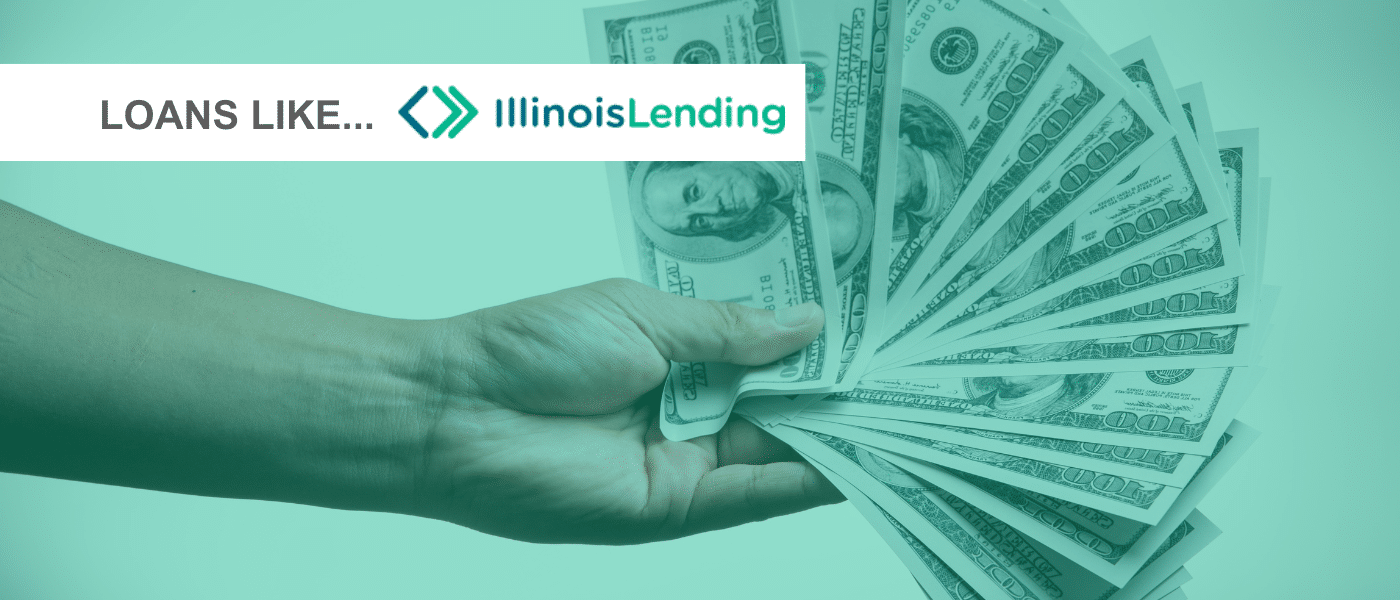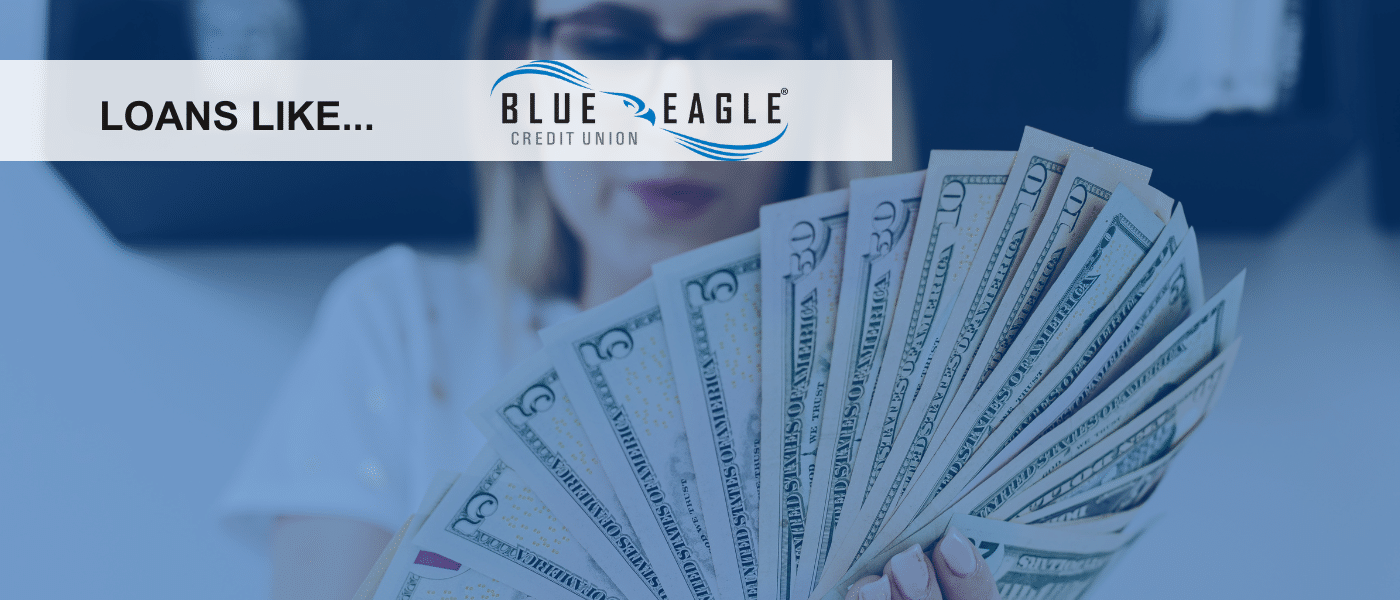Consumers may access personal loans by completing an application online, in-person, or over the phone. Online is usually the fastest way to complete the process. Lenders will consider factors like income, credit score, and ability to repay the loan when making their approval decision.
A personal loan can be a great way to pay for a large or small purchase. Currently, there are approximately 54.9 million personal loan accounts open in the United States.1 If you are thinking of taking out one of these loans but haven’t done so before, you may not be sure how to get a personal loan. The good news is that the process is pretty simple, and once you know about getting started, you can figure out whether it is the right choice for you.
Continue reading to learn more about how personal loans work!
Steps To Get a Personal Loan
Knowing the process for a personal loan will be extremely helpful before you jump into things for yourself. Here is the process of getting unsecured loans in most scenarios:
- Research personal loan offers from multiple lenders
- Apply online, over the phone, or in person
- Receive an approval decision
- Upon approval, sign your loan agreement and receive your funds
Applying for Pre-approval To Find the Right Lender
The first step to getting a personal loan is to find a lender you want to work with. You can find personal loans with a financial institution like a direct lender, bank, or credit union. Credit unions and banks usually have strict credit requirements. The good news is that you can also look at online lenders or in-person private lenders. For pre-approval on a personal loan application, lenders will ask for basic information about you, your income, and your credit score.
Compare Personal Loan Rates, Repayment Terms, and the Lenders
The next step in the personal loan process is to compare your options. Once you apply for pre-approval, you can find out about interest rates, loan terms, loan amount, repayment terms, and more. To find the best loan, ensure that the loan’s interest is competitive, the loan, in general, is affordable, and works for your monthly budget. Personal loan rates will vary on your credit scores, the lender, and market trends. Once you find the lender you want to work with, you can take steps to get final approval.
Move Forward With Final Loan Approval
For final approval, you must verify all your information from the pre-approval process. Lenders will ask for proof of income, which can be proved through bank statements, pay stubs, etc. They will also ask for evidence of residency—pieces of mail, bank statements, utility bills, etc. And finally, they will ask to conduct a hard credit check from one or more of the three major credit reporting agencies. If your personal loan is secured, they will also ask for documentation regarding an asset.
Figure Out if the Loan Is Right for You
If you are approved for the loan, it will be important to really look at things like the monthly payment and repayment terms. If you are unsure what your monthly payments will look like, you can use a personal loan calculator; all you have to do is plug in the correct numbers. Ask your lender about any questions or concerns you may have about the loan. For example, many people ask about origination fees and prepayment penalties. If you still think moving is a good idea, you can do so!
Sign the Loan Agreement and Get Funding
Finally, all you have to do is sign the loan contract. From there, you will get the funds! Usually, these funds will be sent straight to your bank account. Or you can get the funds mailed to you or pick them up in person.
Begin Repaying the Personal Loan
Once you have your funds, you can use them as you like. The convenient thing about personal loans is that you can use the funds on one significant expense or multiple more minor expenses, and you don’t need to use them immediately. In general, lenders will ask for repayment starting 30 days from funding, so keep that in mind. Once repayment starts, you’ll have to make monthly payments until the loan is repaid in full.
What Types of Lenders Offer Personal Loans?
| Type of Lender | Description | Pros | Cons |
| Credit Union | A credit union is a member-owned financial institution that offers banking services, including loans. | – Member-owned, often resulting in better customer service. – Typically offer lower interest rates. – More flexible lending criteria. | – Membership requirements may apply. – Limited locations and online services in some cases. |
| Brokers | Intermediaries that connect borrowers with lenders. | – Can compare multiple loan offers on your behalf. – May get better terms due to established relationships with lenders. | – May charge fees for their services. – Not directly lending the money; acts as a middleman. |
| Direct Lenders | Financial institutions that provide loans directly to borrowers without intermediaries. | – Deal directly with the institution lending money. – Faster loan processing times. – Clear terms and conditions. | – Might not offer the best rates available in the market. – Less room for negotiation. |
| Payday Lenders | Lenders that offer short-term, high-interest loans, typically due on the borrower’s next payday. | – Quick access to funds. – Fewer requirements and checks. | – Extremely high interest rates. – Risk of getting trapped in a cycle of debt. |
| P2P Lenders | Platforms that connect individual lenders and borrowers directly, bypassing traditional banks. | – Allows individuals to lend/borrow money directly without a financial institution as an intermediary. – Potentially lower rates for borrowers. | – Requires good credit for the best rates.- Funding might not be guaranteed. |
| Online Lenders | Digital platforms that offer loans primarily through online processes. | – Convenient online application processes. – Quick funding times. – Competitive rates for those with good credit. | – May have higher fees. – Loan amounts might be limited. |
Disclaimer: The information provided in this chart is for general informational purposes only and should not be considered as financial advice. While we strive to present accurate and up-to-date information, the descriptions, pros, and cons of each lender type may vary based on individual circumstances, specific lender policies, and market conditions. Always consult with a financial advisor or conduct thorough research before making any decisions related to personal loans or choosing a lender.
What Do I Need for a Personal Loan?
To get loan approval with a personal loan, you will need to prove your identity and income and be okay with a credit check. While most personal loans are unsecured loans, if you are working with a secured option, you will need some documentation on that asset—your lender will let you know about what you’ll need for that. Here are the things you will need to apply for a standard personal loan option:
- A form of a government-issued photo ID (a driver’s license, passport, permanent resident card, military ID, etc.)
- Proof of income and employment information (tax returns, bank statements, pay stubs, letters of income, etc.)
NOTE: Some lenders may also use Instant Bank Verification (IBV) which confirms your income via your bank account.
- Proof of residency (a voter registration card, letters of mail, mortgage statement, lease, utility bills, etc.)
You will also have to receive a hard credit inquiry on your credit report as a part of the loan application process.
Lenders will use all this information on your loan application to better guess whether you can make your loan payments.
Can Bad Credit Borrowers Get Personal Loans?
Having good credit will be helpful with any loan option, but bad credit is also okay. There are many lenders out there that are pretty flexible when it comes to credit scores and credit history. If you have bad credit, online lenders are probably the best place to start.
If you have bad credit, lenders will focus more on your income and debt-to-income ratio, so make sure that you show all your income in the loan application and try to avoid unnecessary debt/loan options if possible.
What Are Personal Loans Used For?
One of the advantages of a personal loan is that you can use the loan funds for all kinds of different expenses. Here are some of the most common reasons that people pursue personal loan offers:
Debt Consolidation Loans / Debt Refinancing
One primary reason people take out personal loans is to pay off existing debt. In most cases, this debt includes loans with high interest, like payday loans or multiple credit card balances. You can borrow money with a lower interest rate through a personal loan, making repayment more manageable and faster.
A Down Payment on a Large Purchase
Another common reason people take out a personal loan is a down payment on a large purchase such as a home or a car. With these large purchases, you will need to have at least 10% or so down, which can be thousands of dollars.
To Pay Medical Bills
Medical bills can show up unexpectedly for anyone, and depending on the type of bill, you could owe hundreds or even thousands of dollars. With personal loans, you could pay off your medical bills and have a more manageable payment schedule.
Home Improvement and Repairs
Homeowners can have several necessary repairs or some improvements they may want to make. A personal loan can be an excellent way to finance home improvements and repairs, especially if you don’t have enough value to borrow a home equity loan.
Wedding Expenses
Weddings can cost thousands of dollars, and a personal loan can help take care of some of those costs. Whether you need to pay for a venue, catering, wedding clothes, etc.
Travel
Whether you need to travel for work, an emergency, or fun, a personal loan can help you pay for flights, car rentals, stays, and other miscellaneous expenses.
How to Make Repayment Easy With a Personal Loan
Missed payments on your loan will hurt your credit scores and can lead to loan default (which will hurt your credit score even further). The best way to ensure you pay your loan on time is to set up automatic payments through a checking account. Or you can also do simple things like set up reminders on your phone or computer.
If you do have to make a late payment, you should know that most lenders charge a late fee, which can add to your loan cost.
If your financial situation changes throughout loan repayment, the first thing you should do is to let your lender know. In most cases, lenders will be willing to work with you to come up with a financing option to get payments back on track. If you do need a new lender, refinancing your personal loan is definitely an option.
Personal Loan FAQ
A soft credit check is an initial review of your credit report and does not impact your credit score. Lenders use it to determine your eligibility for a loan. On the other hand, a hard credit check is a detailed examination and can slightly reduce your credit score for a short period.
Some lenders may view a healthy savings account balance as a positive sign of your financial stability and responsibility. It can indicate your ability to manage finances and make timely loan repayments.
Personal loan interest rates can be either fixed or variable. Fixed rates remain constant throughout the loan term, while variable rates can fluctuate based on market conditions. According to the United States Chamber of Commerce, the average interest rates for personal loans can vary between 10% and 28%.2
Loan amounts are determined based on various factors including your income, credit score, credit reports, existing debts, and the lender’s policies. It’s essential to borrow an amount you can comfortably repay.
A secured loan requires you to provide collateral, such as property or a savings account, which the lender can claim if you default on the loan. An unsecured loan doesn’t require collateral but might have higher interest rates due to the increased risk for the lender.
It’s advisable to review your credit reports at least once a year to ensure all information is accurate and to detect any signs of identity theft or fraud.
To enhance your credit score, ensure timely payment of all debts, reduce outstanding balances, avoid opening multiple new credit accounts in a short period, and regularly check your credit reports for errors.
Yes, some lenders specialize in offering loans to individuals with low credit scores. However, the interest rates might be higher, and you may need to provide additional documentation to prove your repayment capability.
Yes, you can have multiple personal loans, but it’s essential to ensure that the combined monthly repayments are manageable. Lenders will also consider your debt-to-income ratio when evaluating your loan application.
While personal loans are typically for personal use, some borrowers use them for business needs. However, it’s crucial to read the loan agreement to ensure there are no restrictions on the loan’s use.
Risks include getting into debt if you can’t repay, potential damage to your credit score from missed payments, and facing higher interest costs if you have a variable rate loan and rates rise. There are also fees and negative consequences (such as an increase in your total loan balance) that borrowers may have to deal with if they miss or are late on their monthly payments.
The amount you can borrow varies by lender, your creditworthiness/credit report, and your income. Typically, personal loans can range from $1,000 to $50,000 or more.
The cost of a personal loan is primarily determined by its interest rate, monthly payments, and any associated fees. The exact cost will depend on the loan amount, term, interest rate, and any fees charged by the lender. Fees vary by lender. Common fees include origination fees, late payment fees, and prepayment penalties. Always check with your lender for a detailed fee structure.
The lender determines the interest rate based on various factors, including your credit score, market interest rates, loan amount, and loan term.
Both the borrower and the lender benefit. The borrower gets access to funds for immediate needs, and the lender earns interest on the loaned amount.
To find the best rates, compare offers from multiple lenders, including banks, credit unions, and online lenders. Consider using loan comparison websites or consulting with a financial advisor.
Some online lenders and payday lenders might offer loans without a traditional credit check. However, these often come with higher interest rates and fees. Always proceed with caution and understand the terms.
A Word From CreditNinja on Personal Loans
While there are no guarantees for personal loan approval, getting one is typically relatively simple! CreditNinja encourages everyone to do research and find a handful of lenders you may want to consider. Once you narrow down your choices, preferably to a single lender, you can then submit an application.
In your search for the right lender, you may want to consider CreditNinja. CreditNinja has been a direct lender since 2018, specializing in bad credit loans. So, if you are worried about your credit score holding you back from the right kind of personal loan, give CreditNinja a chance!
CreditNinja borrowers can enjoy tons of benefits, including:
- Fast funding*
- Easy application process online
- Access to free resources, debt calculators, and more in our dojo
- Affordable monthly payment
- Flexible repayment terms
- Industry-wide competitive interest rates
Get your finances back on track and enjoy the financial freedom you deserve. Head over to our online application to see how much money you may qualify for today!
References:
- Personal Loan Study | Experian
- Personal Loan Statistics | United States Chamber of Commerce
*Not all loan requests are approved. Approval and loan terms vary based on credit determination and state law. Applications approved before 10:30 a.m. CT Monday – Friday are generally funded the same business day. Applications approved after this time are generally funded the next business day. Some applications may require additional verification, in which case, the loan if approved, will be funded the business day after such additional verification is completed.






